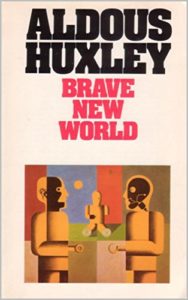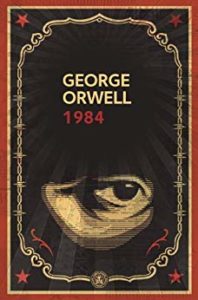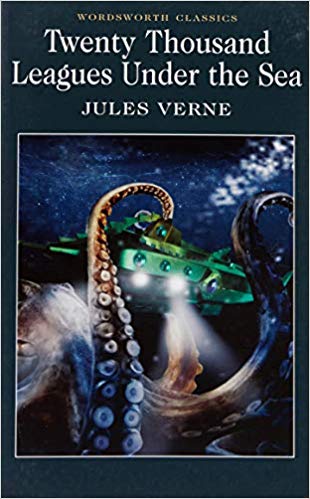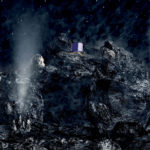What Science Fiction Fact Will Be Next?
Recently Travis Perry addressed this significant topic: “How Science Fiction Portrays the Future of Christianity.” For some time people have commented on the fact that science fiction can “predict” the future. Not really, of course, but a significant percent of science fiction imaginings become the technology of the future.
I remember, for instance, when the original Star Trek cast pulled out their communicators and flipped them open. Then along came those early cell phones that flipped open in much the same way. Of course the electronic tablets the various Star Trek shows used for passing on information and/or storing it, are so reminiscent of today’s computer tablets and reading devices.
But there are dozens more such connections between science fiction and the inventions of the future. Most famously Jules Verne described a submarine in 20,000 Leagues Under the Sea (1870), though apparently a writer named Margaret Cavendish first mentioned submarines in a 1666 satire, The Description of a New World, Called The Blazing-World. I don’t know if the latter counts since satire and science fiction are not trying to accomplish the same thing. Still, it’s remarkable that people so long ago imagined technology we now take for granted.
Other such looks into the future by science fiction writers include things like space travel, space stations, and going to the moon; cloning and robots; the use of microwave technology, radar, x-rays and CAT-scans. Artificial intelligence, of course, is a major player in many science fiction concepts, but so is “Borg technology,” and artificial implants.
 Some of the science fiction ideas came less from imagination and more from an awareness of the current direction science was heading. Electric cars, for instance, popped up in 1969 in John Brunner’s novel Stand on Zanzibar. Aldus Huxley, influenced by J.B.S. Haldane, wrote, in his novel Brave New World, about a world dependent upon what we now call in vitro fertilization.
Some of the science fiction ideas came less from imagination and more from an awareness of the current direction science was heading. Electric cars, for instance, popped up in 1969 in John Brunner’s novel Stand on Zanzibar. Aldus Huxley, influenced by J.B.S. Haldane, wrote, in his novel Brave New World, about a world dependent upon what we now call in vitro fertilization.
Of course there are many imagined science fiction concepts that have not (yet) been turned into fact: star ship “cloaking devices” and “transporter technology”; “photon torpedoes” and “dilithium crystals” that make “warp drive” and interstellar travel possible. These ideas come from the Star Trek family of stories inspired by Gene Roddenberry, but of course there are many others that readers of science fiction can add.
Some of the futuristic ideas coming from the genre, however, point to a bleak future. Thus, the start of the dystopian novel. Much of the downward turn of society, according to these science fiction accounts, comes from the political and social arena: power in the hand of the unscrupulous (such as Darth Vader and the Emperor, or The President in Hunger Games). Divergent by Veronica Roth also conceived of a world engineered by analytics—each young person took a placement test that figured heavily into the “faction” or various divisions from which they’d be assigned.
 George Orwell in his novel 1984 married future technology with societal changes, envisioning a world divided into three states based on location. The one known as Oceania was ruled by Big Brother who controlled the population by a sophisticated system of surveillance. From this authoritarian control came unreliable or “fake” news intended to deceive, not enlighten, the public. Along with this effort the Ministry of Truth regularly modifies photograph (photoshops pictures) to portray what they wish, Orwell’s novel introduced the Thought Police which is a forerunner to the politically correct climate of western culture today.
George Orwell in his novel 1984 married future technology with societal changes, envisioning a world divided into three states based on location. The one known as Oceania was ruled by Big Brother who controlled the population by a sophisticated system of surveillance. From this authoritarian control came unreliable or “fake” news intended to deceive, not enlighten, the public. Along with this effort the Ministry of Truth regularly modifies photograph (photoshops pictures) to portray what they wish, Orwell’s novel introduced the Thought Police which is a forerunner to the politically correct climate of western culture today.
Similarly Huxley brought science and society together in Brave New World, and in the process “anticipates huge scientific developments in reproductive technology, sleep-learning, psychological manipulation, and classical conditioning” (Wikipedia, “Brave New World“). He included a society that was drug-dependent in order to keep them compliant and peaceful.
So I wonder, although speculative fiction has taken the duel turn toward horror—vampires and monsters of various kinds—and superheroes, are there writers imagining and producing in their stories the next set of future technologies or societal trends?
As I understand it, science fiction can serve as a prophetic voice, a warning against the natural outcome of directions that currently exist, or they can point toward hope and help and creativity. The former seems to have dominated the dystopian novels, but without real influence. So another question I have: is a novel successful just because it is popular, or should it have an impact that changes people?
I’d be curious what you all think, especially those who know science fiction better than I do.










































I’ve noticed what seems to me a trend in sci-fi of a sort of post-technology societal state with tribalistic moorings. The increasing focus on technology leads to dehumanization and disconnection from bodily connection with other humans. Which leads to existential despair, which leads to a “down with the machine” mentality that leads to the tribal state. Either with little tech, or with a lot of tech. By tribal, I mean hyper-sensual, hyper-focused on intimate bodily contact with other humans. In the void of total absence of religion, technology feigns to take the place, but damages our psyche, and the next-easiest and most powerful form of religion is human sexuality. People start to worship bodies. But that, too, leads to damage, because we’re more than just bodies, and were never meant to worship sexuality. Tribal state then leads to early religious state. And thus, the cycle continues. Seems like that’s already kinda happening with club-culture.
I don’t know club culture, but the crafting/DIY circles I run in overlaps a little with the crunchy-granola hippie crowd. I wouldn’t say it’s sexuality that’s the focus, more that nature and natural things that you can touch and experience with your senses (inhabit? with your senses) is more the thing, as a contrast to the non-touchy-feely nature of technology.
You touch some yarn, touch some dirt when you garden your organic veggies, touch this crystal against your aches and pains, touch that child with measles to get “natural immunity” (protip: don’t). There are people who found relief in reclaiming their sexuality for themselves rather than for the sake of fertility or the feminine ideal or what have you, but there are people (mostly men) who use the vocabulary for the sake of getting in your pants (protip: don’t touch that, either).
The sensual focus that you’re talking about has a way of crossing over into body worship and loose sexuality. I wasn’t JUST talking about sexuality–everything you’re talking about is what I had in focus though I didn’t quite communicate it well. The most intoxicating bodily experience (barring drugs) would be sexual in nature, and the fact that sex has a spiritual dimension makes it that much easier to view it as the “ultimate expression.” Hippy women seem to tend to view their sexuality as a way of expressing control and worth (self-worship) in a way that lines up with their view of themselves and every other sensual experience (by “sensual” I mean, “having to do with the 5 senses”). Men do the same, only it gets expressed differently and has slightly different motivators (and more easily crosses over into violence over others–which is scary). It’s interesting, because as I’ve deepened my heart-commitment to abiding in Christ (prayer), and viewed worship as the ultimate expression and found it to be the ultimate experience in my life, I’ve had an easier time enjoying simple things like gardening and being in the sunlight, etc. It’s added meaning to all the little things, rather than sucked the meaning out of them. Ironically, before God meant much to me on a heart level, devotion to reading the Bible, etc., served my pride and ended up cheapening all those little experiences. What you believe about God and yourself ends up coloring and changing your experience of everything.
Sex has a spiritual dimension? Not so much, in my experience. In fact, that’s a myth/artificially inflated expectation that probably does more harm than good. But then, I haven’t seen a good distinction made between the spiritual and the emotional.
The thing is, you can get that euphoric sensation from more than one place. Corporate worship or a rock concert. Sunlight and gardening have things to offer everyone who isn’t the correct flavor of religion. It all uses the same mechanics in your brainpan.
I disagree about sex not being spiritual. (Though I agree sunlight and gardening have things to offer everyone who isn’t the correct flavor of religion. Still, without getting mystical, someone who believes gardening a healthy activity will get something completely different from it than someone who believes gardening a bore. Belief impacts our experiences profoundly on a practical level.)
I like the freedom to admit to yourself when something isn’t working for you, without the guilt, if it’s supposed to be a spiritual thing. Like if listening to hymns isnt cutting it, I can pay a tiny Asian lady to therapeutically punch my spine without feeling like some kind of degenerate.
Lol, alright. Not sure how that would make you degenerate. . . or even what that has to do with anything. But I’d like the same freedom.
Webtoons has some interesting ones. LUFF by Arechan, which is a romance, is set in a somewhat futuristic and dystopian world. There’s a dating app called LUFF, which has become important to society. Stable, happy marriages makes for more stable and productive citizens, the government says, so everyone’s LUFF number almost functions like a credit score in that it affects some of the things citizens can obtain and participate in. The comic hasn’t been going for very long, but it’s interesting so far. Especially since, at this point in time, the society doesn’t seem horribly oppressive, but we still see negative effects of this system. https://www.webtoons.com/en/romance/luff/list?title_no=1489
Then there’s Rebirth by 69Michi. It’s listed as fantasy, but has scifi elements. Not sure what it’s going to do as far as future implications go. The main char has a health monitor thing since he has a heart condition. But, it’s a really cool comic. So far, the main focus seems to be more about family drama, staying alive, and figuring out mysterious circumstances than around romance. https://www.webtoons.com/en/fantasy/rebirth/list?title_no=1412
UnOrdinary by uru-chan is sort of futuristic dystopian with superpowers. People with superpowers are the norm. So those with weak or non existent powers are treated with disdain. It starts off rather so so, but gets very good. It’s very interesting to see how people behave under the system in this story, and why. The author doesn’t oversimplify it, which is nice. https://www.webtoons.com/en/fantasy/unordinary/list?title_no=679
Seed by Said P. is really good. It’s futuristic scifi, in which AI is very common and only getting more advanced as time goes on. The story is about a girl whose phone gets infected by a rogue AI, and she’s figuring out how to handle it, since the AI is both scary and helpful. It kind of discusses both future tech(that is already coming) and some of the societal implications. https://www.webtoons.com/en/sf/seed/list?title_no=1480
I usually don’t like futuristic stories that depict a bright, chirpy technological future and nothing else(though there are a few I like). It’s usually unrealistic and makes people forget that nothing is perfect. I kind of like it when stories explore both the upsides and the downsides, though sometimes a totally bleak one is interesting, too.
As far as success goes, that depends on the goal, honestly. I like speculating about things through my writing and presenting ideas of how people react to them, along with ways to navigate issues. Of course it’d be nice if my stuff was popular, but fiction can be insanely influential even if it only influences a tiny fraction of someone’s life.
That tiny influence can change someone’s future, even after the story itself has been forgotten. There’ve been tidbits of roleplays and fanfictions that have been like that for me. Like, I won’t even remember what those particular ones were called, and their influence on me doesn’t feel earth shattering, but sometimes I think back to tidbits of those stories and it helps me put certain things in context and understand stuff better. I’ve been grateful for the effort those authors put into their writing, even if they probably didn’t think their hobby was significant, and I don’t even remember their names now. We probably shouldn’t underestimate the power of that kind of influence, even if our works are only read by a hundred people or something.
Some authors might not really want to influence people’s thinking, though. Some people just want to make a story that brings them fame or money. Some people just want their stories to brighten someone’s day, rather than provide deep meaning. So, in a lot of ways, whether or not a story is ‘successful’ depends on whether it fulfilled the purpose and desire of the author. Though of course, there’s other types of success, depending on how technical one wants to get.
Science fiction of the 50s predicted loads of interplanetary space travel by our period in the 21st Century. And none exists–except for NASA probes.
Fifties sci fi also predicted plenty of artificial intelligence by our time, but in distinct, human-like individual robots. What actually happened is that real artificial intelligence has proven elusive, but computer technology provides quasi intelligence virtually everywhere in a vast network.
Science fiction, in other words, has been wrong about the future as often or even more often than it’s been right.
I personally predict though that trends in networking and virtual reality will continue, genuine artificial intelligence will remain elusive, and interplanetary travel will never really take off as a routine thing, Elon Musk notwithstanding.
But I so easily could be wrong.
I think you’re right, though I hope virtual reality goes away.
Some people have been programming AIs to try and write stories, interestingly enough. I haven’t looked at the results of that. Obviously it’s not like what a human can do yet. Unfortunately and fortunately AI has been improving, whether or not it will reach human like levels.
I think AI will reach human levels. But it will be harder and take longer than is generally believed is my prediction.
Good point about SF being wrong as often as right, Travis. A good thing to keep in mind!
Becky
I wonder about what future lengths civilization will go to protect itself from the drugs getting dumped into our water tables – and I am just talking about the prescription kinds which are showing up. What kind of filters will we use? Will they keep up?